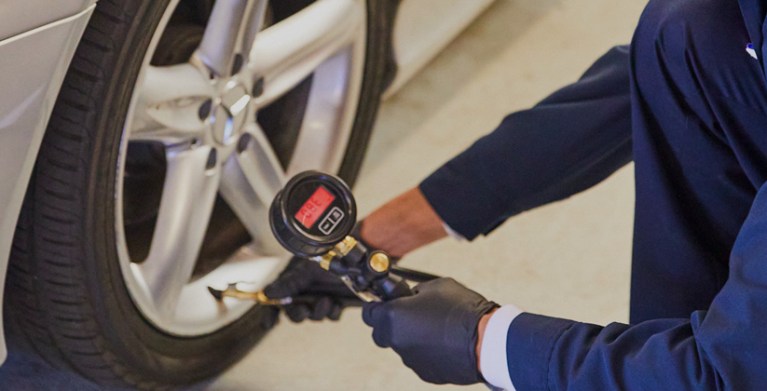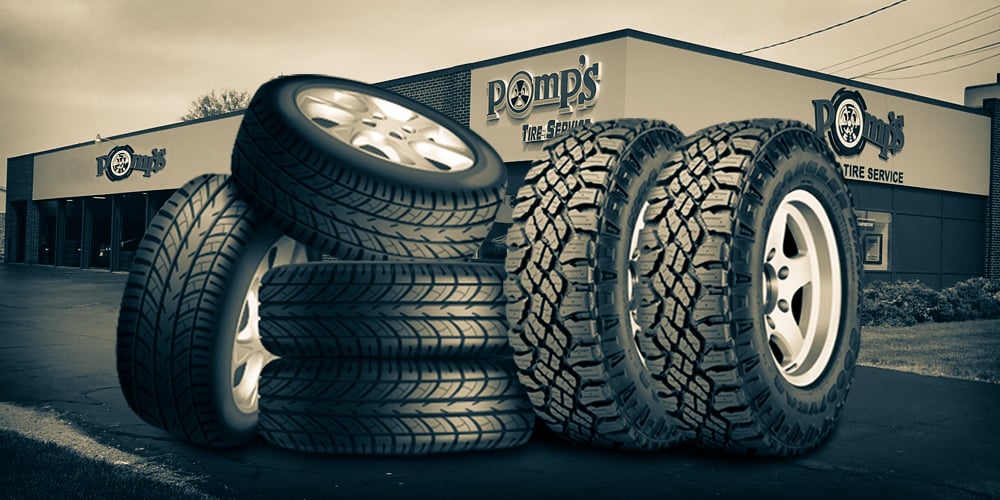Morris Tires: Your Companion for Expert GMC Tires Service
Morris Tires: Your Companion for Expert GMC Tires Service
Blog Article
Tire Service: The Impact of Weather
When it comes to ensuring optimal efficiency and safety and security when traveling, comprehending the effect of climate condition on tire service is vital. From scorching warmth to icy roadways, each weather condition aspect can considerably affect tire functionality and general driving experience. By diving into the impacts of varying climate condition on tires, chauffeurs can acquire beneficial insights that might improve their vehicle's performance and durability. In this conversation, we will certainly explore the elaborate partnership between weather and tire service, dropping light on the relevance of weather-specific tire maintenance techniques and considerations.
Heat and Tire Efficiency
When revealed to high temperatures, tires experience adjustments in performance that can substantially influence car safety and handling. The warm created from extended driving or hot weather problems causes the tire rubber to soften, leading to lowered step life and boosted wear.

Cold Weather Impacts
Cold climate conditions can have a substantial effect on tire performance and safety and security. As temperatures decrease, tire rubber can solidify, resulting in reduced grip on icy or snow-covered roads. In cold weather, tires may additionally shed air stress much more rapidly, which can influence managing and fuel effectiveness. In addition, chilly temperature levels can cause tire sidewalls to stiffen, enhancing the danger of damage from potholes or other road threats.
To alleviate the results of winter on tires, it is essential to regularly inspect tire stress and inflate them to the supplier's suggested degrees. Utilizing wintertime or all-season tires developed for chilly weather problems can likewise enhance traction and grasp on icy or snowy roads. Appropriate tire maintenance, consisting of regular inspections for wear and damage, becomes much more vital during cooler months to make sure optimum performance and safety.
Rainy Issues Effect
Tires with worn-out treads are more prone to hydroplaning, where a layer of water develops up in between the tire and the road surface, leading to loss of grip. To fight this, chauffeurs need to on a regular basis examine their tires for appropriate walk depth and think about spending in tires specifically developed for damp problems.
Furthermore, stormy weather condition can also lower exposure, making it testing for drivers to see the roadway ahead plainly (GMC Tire Service). In such problems, it is vital to change driving speeds as necessary and keep a safe adhering to range to allow for abrupt quits. Properly filled with air tires can also help in maintaining control on wet roads by offering far better handling and grip
Snow and Tire Security
Snow-covered roadways present one-of-a-kind obstacles for drivers, stressing the importance of appropriate tire selection and upkeep. When driving in snowy conditions, having the appropriate tires can make a substantial distinction in safety and security and efficiency. Winter months tires are designed with special rubber compounds and tread patterns to offer far better traction on snow and ice contrasted to all-season tires. The much deeper footsteps and sipes of winter season tires assist grip the road better, reducing the threat of gliding and sliding.

It is essential to adhere to manufacturer instructions when utilizing and setting up tire chains to protect against damages to the tires and vehicle. By selecting the best tires, maintaining proper rising cost of living, and considering additional traction aids like tire chains, chauffeurs can enhance their security when browsing snow-covered roadways.
Weather-Related Tire Upkeep
When faced with different weather condition conditions, proper tire maintenance becomes an essential aspect of lorry safety and security and performance. Weather-related tire upkeep encompasses a range of techniques targeted at making sure ideal tire feature and longevity in various weather condition situations. One crucial facet of weather-related tire upkeep is tire pressure law. Changing temperature levels can trigger tire stress to differ, influencing traction and gas efficiency. Regularly checking and changing tire pressure according to supplier suggestions is vital for secure driving in altering climate condition. Furthermore, tire walk deepness plays a considerable duty in handling different weather condition components. Tires with appropriate walk depth supply better hold on wet or icy roadways, reducing the threat of hydroplaning or skidding. When step wear reaches a particular depth is crucial for keeping grip and stability in unfavorable weather, examining tire step consistently and changing tires. By focusing on weather-related tire maintenance, drivers can enhance safety, enhance vehicle performance, and lengthen the life expectancy of their tires.
Verdict
In final thought, climate conditions have a significant effect on tire efficiency and safety. From warmth affecting tire pressure and put on to chilly weather condition lowering traction, it is necessary to consider the weather when maintaining and using tires.
In this discussion, we will check out the complex relationship in between climate conditions and tire service, shedding light on the importance of weather-specific tire upkeep practices and considerations.

Report this page